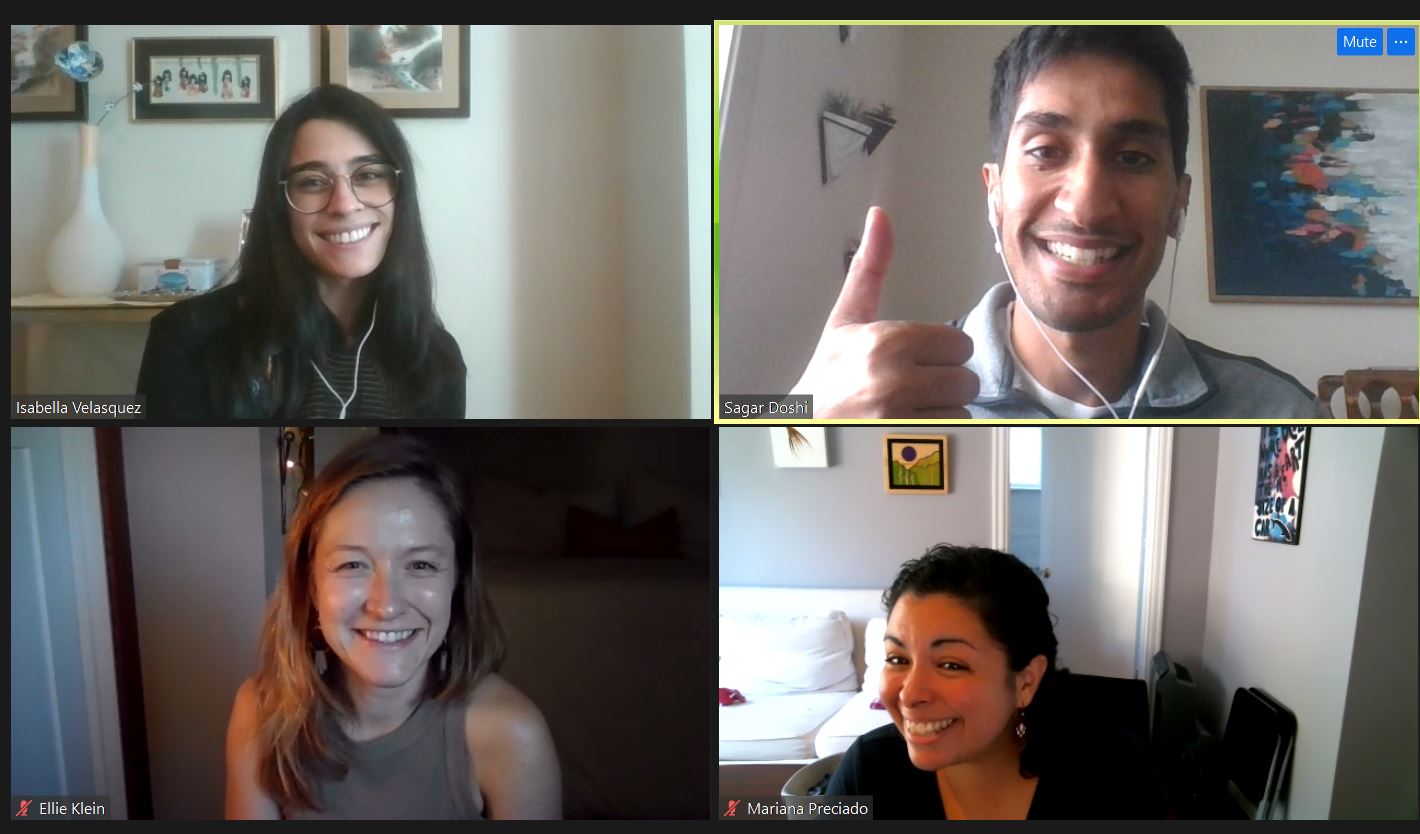So You Say You Want to Work in Sustainability?
 By Katie DeWitt, First Year Berkeley-Haas MBA Student
By Katie DeWitt, First Year Berkeley-Haas MBA Student
Coming from a nonprofit and government background (at business school we’re called “poets”), I came to Haas with the aim of getting some private sector experience in my areas of interest, social impact and environmental sustainability, and hoping that was possible.
After a year of coursework, extracurricular activities, conferences, case competitions and networking, I have come across more opportunities than I could ever have imagined existed.
The most fulfilling thing about my first year at Haas has been learning – not only by listening and studying – but also by doing. I have had the opportunity to work on two client-facing consulting projects, one assessing the feasibility of a new urban wind technology and another applying sustainability frameworks in a traditional corporate setting. I have participated and placed in three major MBA competitions: the Leading for Impact Challenge, the Department of Energy Better Building case competition, and the Global Social Venture Competition. And I have been able to connect and work with people who share similar interests through holding leadership positions in Net Impact (VP of Sustainability, a new role we created this year!) and the Berkeley Energy and Resources Collaborative.
Even inside the classroom, my group projects and interactive learning activities have proved challenging and stimulating. For example, in my Strategic Corporate Social Responsibility course, which is part of Haas’ flagship BILD curriculum, one of our lecture topics was about change management and pitching a sustainability projects across an organization. Instead of sitting and taking notes while Professor Romero-Hernandez told us how this works, we had to figure it out ourselves.
Through an online, real-time simulation (every minute was a day), we had 90 days to get our company’s key stakeholders on board and convert 90% of our employees from awareness to interest to adoption. We were provided background on the employees’ positions and interests, with a web illustration of how they are connected inside the organization both personally and socially, and an organizational chart. To manage change, we could publicly announce project milestones and goals, hold one-on-one meetings to explain the initiative, and so on. If we chose a good path with the correct people, we would progress, while just one misstep would cost us credibility within the company. Let’s just say we all learned fast that blast emails are not the way to go…
In my Environmental Management and Public Policy course, which is cross-listed with the Goldman School of Public Policy, I have gotten the chance to engage with students from outside of Haas who are also working on environmental issues, but from a refreshingly different perspective. Our class topics, such as Wal-Mart’s credibility as a leader in corporate sustainability, or whether Greenpeace crossed the line in attacking Shell on the Brent Spar platform, often spark a friendly and healthy debate. My main takeaway from the course is that cross-sector collaboration is a necessary – though often challenging and frustrating – piece of any impactful and lasting environmental initiative, an appropriate lesson to learn in a class populated with students from across Berkeley’s professional schools.
To be sure, I was not the only one who arrived at Haas with just a spark of a sense for what I wanted to accomplish in the world. But after my first year I am more deeply focused on building particular skills in change management and supply chain analysis with an eye toward influencing decisions that companies make to improve their environmental and social impact.
Heading into my internship with the Environmental Defense Fund this summer, I feel equipped to make informed recommendations around corporate energy efficiency upgrades and look forward to continuing to build my toolkit. The answers I will continue to press towards in my second year are not about what, but how to promote sustainable products and policies more rapidly and effectively, through more cool classes like Cleantech-to-Market and Energy and Society.
There is a wealth of resources at Haas and at UC Berkeley to be taken advantage of in the area of sustainability. The hardest part is definitely fitting them all in. If only business school were a five-year program!


